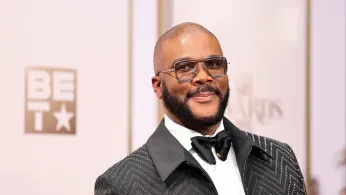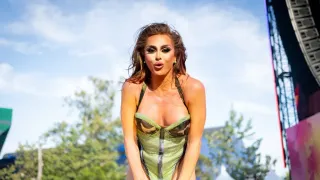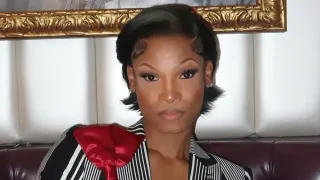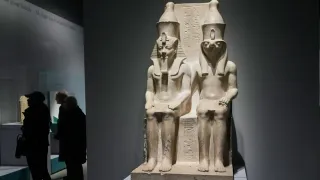
4 hours ago
Tyler Perry Responds to Derek Dixon’s $260 Million Sexual Harassment Lawsuit
READ TIME: 3 MIN.
Tyler Perry, one of Hollywood’s most influential creators and an outspoken advocate for marginalized communities, is at the center of a high-profile legal battle following a lawsuit filed by actor Derek Dixon in California. Dixon, who worked as a series regular on Perry’s show "The Oval", claims that Perry engaged in a “sustained pattern of workplace sexual harassment, assault, and retaliation,” leveraging his industry power to create a coercive environment. The lawsuit, which seeks $260 million in damages, alleges that Perry promised career advancement and creative opportunities—such as producing Dixon’s pilot and casting him in shows—only to subject Dixon to escalating harassment when advances were rebuffed. Dixon asserts that Perry threatened his job security and attempted to intimidate him with the prospect of killing off his character on the show .
The complaint details alleged flirty text messages, unwanted physical contact, and professional retaliation, painting a picture of workplace misconduct that, if proven, would represent a serious breach of both legal and ethical standards within the entertainment sector .
Tyler Perry’s legal team responded swiftly and forcefully, filing court documents that reject Dixon’s allegations as “profoundly disappointing” and “cynical.” Perry asserts that the suit is built on “Hollywood stereotypes” and the “bad acts of others,” claiming that Dixon invented assaults and encounters that never happened. Perry’s filings emphasize that he “never assaulted Dixon or committed any sexual battery,” and did not use promises of pay raises or creative opportunities to threaten or coerce the actor. Perry’s team argues that Dixon is exploiting their professional relationship and seeking a massive payout through falsehoods .
The legal response goes beyond mere denial, framing Dixon’s actions as an attempt to exploit Perry’s friendship and professional standing for personal gain. Perry’s team maintains that the allegations are entirely fabricated and that the lawsuit should be dismissed .
This lawsuit arrives at a time of heightened awareness around workplace harassment and the abuse of power within the entertainment industry, following years of activism and the #MeToo movement. For LGBTQ+ professionals—who often face additional layers of vulnerability due to discrimination and underrepresentation—the case raises urgent questions about safety, respect, and accountability in creative spaces.
Perry’s prominence as a Black filmmaker and philanthropist who has frequently championed LGBTQ+ narratives in his work makes the allegations particularly resonant. The entertainment sector continues to grapple with the challenge of protecting marginalized actors and creators—especially those who identify as LGBTQ+—from exploitation and retaliation. Cases like Dixon’s, regardless of the outcome, serve as reminders that visibility and success do not insulate individuals from workplace misconduct or systemic inequities.
As the legal process unfolds, both parties will present evidence and arguments before the court, with the potential for significant ramifications depending on the outcome. For Perry, the stakes are not only financial but reputational, as the suit threatens to overshadow a career built on breaking barriers and fostering diverse talent. For Dixon, the case represents an opportunity to advocate for greater industry accountability—though the burden of proof in sexual harassment cases remains substantial.
Legal experts note that celebrity cases often hinge on credibility, documentation, and the ability to establish patterns of behavior. The scrutiny applied to Perry’s conduct may set precedents for future cases, particularly those involving LGBTQ+ actors and creators who may be less likely to report harassment due to fear of reprisal or marginalization .
The entertainment industry, meanwhile, faces another test of its commitment to creating equitable and safe workplaces, with advocacy groups closely watching the proceedings for lessons and potential calls to action.






